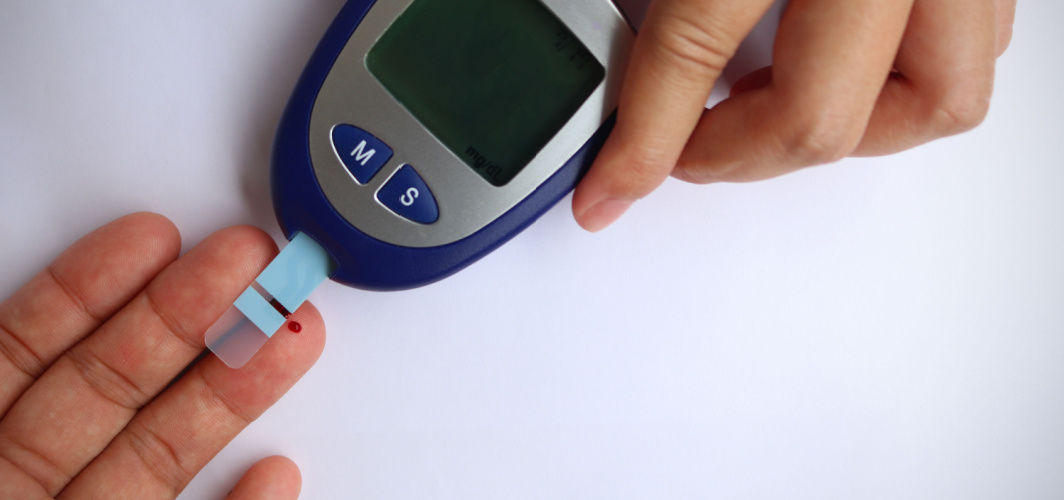Diabetes Management
Boosting Immunity with Food: A Guide for Diabetics
2 min read
By Apollo 24|7, Published on - 10 October 2024
Share this article
0
0 like
.jpg?tr=q-80)
When managing diabetes, focusing on sugar levels and overall health is crucial. One aspect of health that deserves special attention is immunity. As individuals with diabetes are more vulnerable to infections, strengthening the immune system becomes vital. This blog will guide you through some foods that can enhance immunity while being friendly to your blood sugar levels.
Fruits and Vegetables
Fruits and vegetables should form an essential part of all meals. The following fruits and vegetables are especially beneficial for diabetics to boost their immunity:
- Green Leafy Vegetables: Vitamins A and C are vital for immune function, and green leafy vegetables like spinach, broccoli, and kale are rich in these nutrients.
- Citrus Fruits: Low in sugar yet high in vitamin C, citrus fruits like lemons, oranges, and grapefruits can boost your immune system without spiking your blood sugar levels.
- Berries: Blueberries and other berries are loaded with antioxidants that strengthen the immune system.
Probiotics and Anti-inflammatory Foods
Probiotics support gut health, thereby boosting immunity. Anti-inflammatory foods, on the other hand, help reduce inflammation in the body. Here are some essentials that diabetics should include in their diet:
- Yoghurt: Unsweetened yoghurt is packed with probiotics which contribute to gut health and immunity. It also provides essential nutrients like calcium and vitamins B5 and B12.
- Turmeric: The active ingredient in turmeric, curcumin, is known for its anti-inflammatory properties.
Healthy Fats and Oils
Foods rich in healthy fats and oils can also support immune function. Here are some essentials:
- Nuts: Healthy fats and vitamin E present in almonds, walnuts, and cashews can help manage blood sugar levels whilst supporting immune function.
- Sunflower Seeds: Rich in vitamin E and selenium, these seeds can help regulate immune function and protect against infections.
- Oily Fish: Salmon, mackerel, and other fatty fish are high in omega-3 fatty acids which reduce inflammation and support immune health.
Root Vegetables
Some root vegetables also have excellent immunity-boosting properties:
- Garlic & Ginger: These common kitchen ingredients have anti-inflammatory properties which help in enhancing immunity.
- Sweet Potatoes: Contrary to belief, sweet potatoes are a good option for diabetics because of their low glycemic index. They are also a good source of beta-carotene which supports skin health and immune function.
By including these foods in your diet, you can enhance your immunity while effectively managing diabetes. But remember, diet is just one part of a comprehensive approach to managing diabetes. The Apollo Super 6 program, developed by Apollo doctors in India, offers personalised support to manage type 2 diabetes through dietary changes, increased physical activity, and ongoing support. The program has shown success in reducing HbA1c levels and blood sugar, enhancing active lifestyles, and sleep quality.
Diabetes Management
Consult Top Diabetologists
View AllLeave Comment
Recommended for you

Diabetes Management
Navigating Carbs and Proteins: A Guide for Diabetic Individuals
Navigating Carbs and Protein for Diabetes Control Proper diabetes management requires understanding how carbohydrates and proteins affect blood sugar levels. Carbohydrates directly raise blood sugar, but high-fibre sources can slow this process. Protein helps to maintain blood glucose over a longer period, with lean sources being the best option. Balancing these two nutrients at each meal is crucial for sustained diabetes control.

Diabetes Management
Celebrate Diwali While Keeping Your Blood Sugar In Control!
With these tips, you can enjoy the festival of Diwali while keeping a check on your blood sugar levels.

Diabetes Management
Having a Diabetic Parent Can Increase Your Risk by 30%: Study
A recent study highlights a 30% increased risk of diabetes when one parent is affected. This means that genes play a significant role in deciding whether an individual will inherit the condition or not. However, environmental factors and lifestyle choices such as a balanced diet and regular exercise can mitigate this risk. Early detection through health check-ups and educational initiatives promoting proactive health measures are essential for those with a family history of diabetes.
Subscribe
Sign up for our free Health Library Daily Newsletter
Get doctor-approved health tips, news, and more.
Visual Stories

8 Fruits That are Incredibly Healthy for Diabetes
Tap to continue exploring
Recommended for you

Diabetes Management
Navigating Carbs and Proteins: A Guide for Diabetic Individuals
Navigating Carbs and Protein for Diabetes Control Proper diabetes management requires understanding how carbohydrates and proteins affect blood sugar levels. Carbohydrates directly raise blood sugar, but high-fibre sources can slow this process. Protein helps to maintain blood glucose over a longer period, with lean sources being the best option. Balancing these two nutrients at each meal is crucial for sustained diabetes control.

Diabetes Management
Celebrate Diwali While Keeping Your Blood Sugar In Control!
With these tips, you can enjoy the festival of Diwali while keeping a check on your blood sugar levels.

Diabetes Management
Having a Diabetic Parent Can Increase Your Risk by 30%: Study
A recent study highlights a 30% increased risk of diabetes when one parent is affected. This means that genes play a significant role in deciding whether an individual will inherit the condition or not. However, environmental factors and lifestyle choices such as a balanced diet and regular exercise can mitigate this risk. Early detection through health check-ups and educational initiatives promoting proactive health measures are essential for those with a family history of diabetes.
